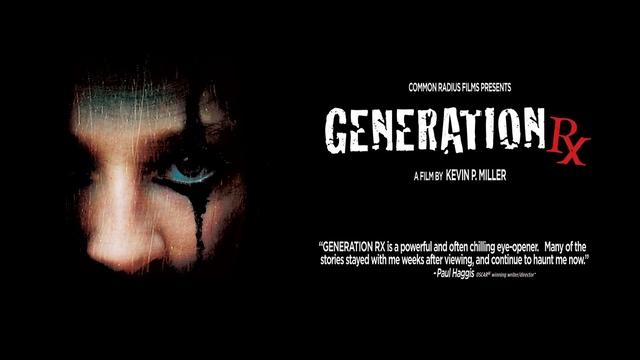Generation RX
Prozac Nation
 Prozac Nation has given birth to a generation of messed-up kids. Children in the West are routinely diagnosed as depressed, hyperactive or bipolar, and systematically plied with powerful drugs. In the US alone, it's a market worth $130,000 per second. But if we were allowed access to proper information, would we really be doling these pills out like sweets, to get our troubled children off our nerves?
Prozac Nation has given birth to a generation of messed-up kids. Children in the West are routinely diagnosed as depressed, hyperactive or bipolar, and systematically plied with powerful drugs. In the US alone, it's a market worth $130,000 per second. But if we were allowed access to proper information, would we really be doling these pills out like sweets, to get our troubled children off our nerves?
Stories have circulated for decades about the dangers of psychiatric medication: famous cases of teenagers who became gun-toting maniacs after popping pills to combat mild depression; or the otherwise healthy girl, prescribed antidepressants for exam stress, who was found hanging from a rope in her bedroom not long afterwards. At the 1991 Prozac trials, scores of impassioned victims affirmed that the drug pushed them to the brink of despair: "I tried to kill myself in front of my five children," confesses one mother in the witness-box. Countless others weep for dead relatives. But this moving footage is only the tip of the iceberg: most of the tapes are now lost. Giants like Lilly, Pfizer and Glaxo SmithKline have worked hard to silence these angry voices and reduce the available information to a mere whisper.
In Generation RX, experts and victims band together to expose the corruption in the pharmaceutical industry, and liberate our mental health from its dictatorial sway. Assembling a plethora of leaked memos, flawed studies and previously-unseen conference footage, they uncover a pattern of collusion between drug manufacturers and their regulatory watchdogs at the FDA. At the core of the whole affair is the drug companies' ruthless pursuit of profit: how can we trust any drug when its safety is "guaranteed" by the same body that makes money out of it?
Current research is working to discredit the smily Zoloft rock of the TV ads, while lawyers lobby for structural changes to the industry. But in the absence of drastic change, the epidemic of overmedication continues to grow, spawning a whole new set of disorders. While Prozac is linked to a host of problems, from early-onset diabetes to increased risk of suicide, Ritalin is known to cause brain atrophy and has been likened to a "chemical lobotomy". Experts fear that unneccessary damage done by one drug will trap patients in a cycle of chemical imbalance and further drug dependency: "Because they fidgeted in school, they're going to end up on antipsychotics."
In this era of mercenary medication, are we forgetting what it is to be human? One expert sums it up: "Kids are kids." Just a few decades ago, it was accepted that kids sometimes get sad; kids sometimes get restless. Now, it seems we are panic-prescribing against phantom defects, trying to make human beings into happiness-machines: a plan that backfires with heartbreaking frequency.
FULL SYNOPSIS
In this era of mercenary medication, are we forgetting what it is to be human? One expert sums it up: "Kids are kids." Just a few decades ago, it was accepted that kids sometimes get sad; kids sometimes get restless. Now, it seems we are panic-prescribing against phantom defects, trying to make human beings into happiness-machines: a plan that backfires with heartbreaking frequency.


